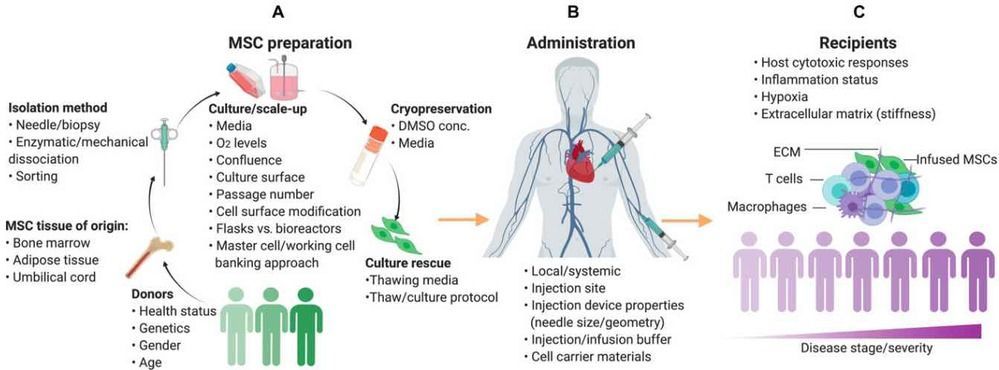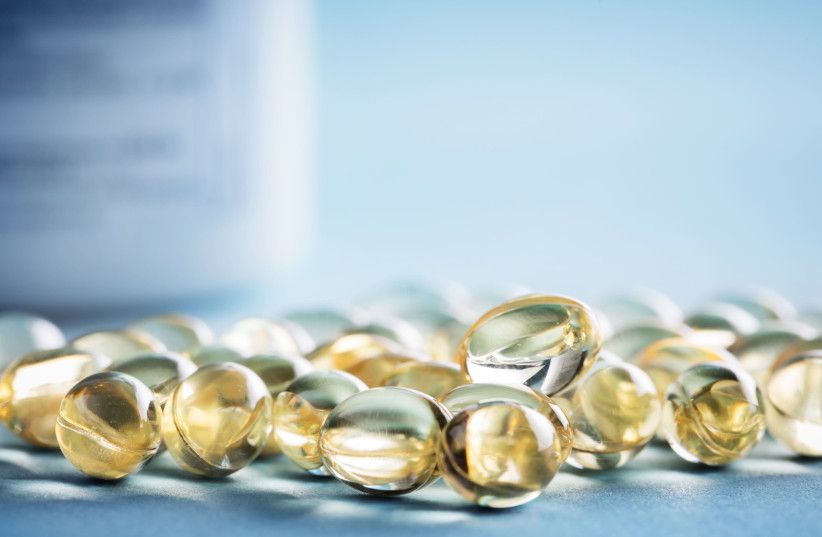APOD: Tianwen-1 Mission to Mars (2020 Jul 25)
Image Credit & Copyright: Jeff Dai (TWAN)
A different astronomy and space science related image is featured each day, along with a brief explanation.


Summary: Tufts researchers have developed neurotransmitter-lipid hybrids that help transport therapeutic drugs and gene editing proteins across the blood-brain barrier in mice.
Source: Tufts University
Biomedical engineers at the Tufts University School of Engineering have developed tiny lipid-based nanoparticles that incorporate neurotranmitters to help carry drugs, large molecules, and even gene editing proteins across the blood-brain barrier and into the brain in mice. The innovation, published today in Science Advances, could overcome many of the current limitations encountered in delivering therapeutics into the central nervous system, and opens up the possibility of using a wide range of therapeutics that would otherwise not have access to the brain.

Interesting.
Audi has announced that it is testing out bidirectional charging technology for electric cars, this would incorporate the electric car into the domestic power grid and could provide additional power to the grid when not in use.
What this would do is make electric vehicles a storage unit for energy to be drawn on by the grid or the owners house when needed, for example when a vehicle was parked overnight or not in use.

Ready for the latest recommended weekly reads in the world of stem cells and the regenerative medicine space including a bunch of important new FDA posts & changes?
This post has quite a lot on the FDA since it had a very big week with several new items of major importance to the cellular and regenerative medicine arena. I’ve linked to each announcement below with the agency’s title of the announcements. Underneath I provide some analysis and ask questions.
I’ve also included some other stem cell news and exciting papers too as usual, which I’ll start with here.


People often talk about sugar intake and health 🤔
Researchers have successfully increased cancer cells’ sensitivity to chemotherapy to prevent glucose from entering the cancer cell.
Researchers at Lund University in Sweden have successfully increased cancer cells’ sensitivity to chemotherapy by preventing sugar uptake. Their study, “Targeting Glut1 In Acute Myeloid Leukemia To Overcome Cytarabine Resistance,” is published in Haematologica.
It is true that sugar feeds every cell in our body, even cancer cells. Researchers have long wondered if it would be possible to prevent glucose from entering the cancer cell and in that way increase the effect of chemotherapy.
To enable sugar molecules to enter the cancer cell through the cell membrane, the cell uses glucose transporters (GLUTs), which allow substances in and out. Researchers decided to study GLUT1 and its role in acute myeloid leukemia (AML).

Low levels of vitamin D may put people at risk for developing COVID-19, a new study by לאומית שירותי בריאות and the Azrieli Faculty of Medicine of Bar-Ilan University.
Vitamin D has long been understood to impact immune response. According to Dr. Milana Frenkel-Morgenstern, leader of the Azrieli Faculty of Medicine research group, as much as 70% of the adult population worldwide is vitamin D insufficient or deficient.
The Leumit and Bar-Ilan scientists analyzed if the risk of developing COVID-19 or becoming hospitalized because of it increases for people who have a low level of vitamin D.
They studied 782 Israeli COVID-19-positive patients and 7,825 negative patients and determined that a low plasma vitamin D level appears to be an independent risk factor for COVID-19 infection and hospitalization.
“We don’t know the mechanism,” Frenkel-Morgenstern said. “What we do know is that people who develop severe COVID and were hospitalized – these people have significantly low vitamin D levels.”
❤️ Check out Weights & Biases and sign up for a free demo here: https://www.wandb.com/papers
Their instrumentation of this paper is available here:
https://app.wandb.ai/stacey/stargan/reports/Cute-Animals-and…zoxNzcwODQ
📝 The paper “StarGAN v2: Diverse Image Synthesis for Multiple Domains” is available here:
- Paper: https://arxiv.org/abs/1912.01865
- Code: https://github.com/clovaai/stargan-v2
- Youtube Video: https://youtu.be/0EVh5Ki4dIY
The paper with the latent space material synthesis is available here:
🙏 We would like to thank our generous Patreon supporters who make Two Minute Papers possible:
Aleksandr Mashrabov, Alex Haro, Alex Paden, Andrew Melnychuk, Angelos Evripiotis, Benji Rabhan, Bruno Mikuš, Bryan Learn, Christian Ahlin, Daniel Hasegan, Eric Haddad, Eric Martel, Gordon Child, Javier Bustamante, Lorin Atzberger, Lukas Biewald, Michael Albrecht, Nikhil Velpanur, Owen Campbell-Moore, Owen Skarpness, Ramsey Elbasheer, Robin Graham, Steef, Sunil Kim, Taras Bobrovytsky, Thomas Krcmar, Torsten Reil, Tybie Fitzhugh.
More info if you would like to appear here: https://www.patreon.com/TwoMinutePapers
Károly Zsolnai-Fehér’s links:

North Korea declared a state of emergency on Sunday after one person in the country was suspected of being positive for COVID-19.
On Sunday, local time, state news agency KCNA reported North Korean leader Kim Jong Un  Kim Jong UnNorth Korea declares state of emergency due to a suspected COVID-19 case Pompeo downplays chance of summit with North Korea this year Juan Williams: Trump’s silence on Russian bounties betrays America MORE convened an emergency politburo meeting after a person who defected to South Korea three years ago was “suspected to have been infected with the vicious virus.” The person is reported have returned to the North Korean border city of Kaesong, Reuters reported.
Kim Jong UnNorth Korea declares state of emergency due to a suspected COVID-19 case Pompeo downplays chance of summit with North Korea this year Juan Williams: Trump’s silence on Russian bounties betrays America MORE convened an emergency politburo meeting after a person who defected to South Korea three years ago was “suspected to have been infected with the vicious virus.” The person is reported have returned to the North Korean border city of Kaesong, Reuters reported.
Kim declared a state of emergency and imposed a lockdown in Kaesong, reportedly calling it a “critical situation in which the vicious virus could be said to have entered the country.”

In the first of a four-part series, we look at the changes that have propelled China’s stock market into the world’s top performer this year.
The Star Market, conceived and created within eight months, has expanded into Asia’s largest growth market after a year in operation, with 133 listed stocks valued at US$400 billion.
Dozens of China’s biggest start-ups were driven to New York over the past two decades to seek funding. Now, as US-China tensions rise, more and more of them are choosing to stay close to home.